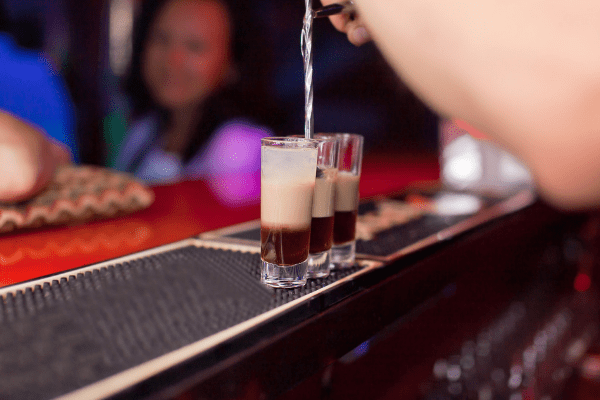Young women are three times more likely than men of the same age to experience blackouts caused by excess drinking. That’s according to a new study undertaken by researchers at the National Drug and Alcohol Research Centre (NDARC) at the University of NSW in Sydney.
The study, titled ‘Trajectories of alcohol-induced blackouts in adolescence: early risk factors and alcohol use disorder outcomes in early adulthood’ was published in January by the Society for the Study of Addiction and used eight years’ worth of data from the Australian Parental Supply of Alcohol Longitudinal Study (APSALS).
A total of 1,821 young people were interviewed, with findings revealing considerable differences in the rate of blackouts experienced by men and women.
The youngest persons analysed were aged 13, and questions asked of the participants in the study included when they started drinking alcohol, if they had any alcohol-related blackouts, if they had abused alcohol or become addicted to it and how many times they have been unable to remember what had happened while they had been drinking in the past 12 months.
The study found that young women were 1.8 times more likely to have a blackout when drinking the same amount as males and that by the time they hit the age of 19, almost half who drank had blacked out. Among these people, nearly 14 percent had experienced five or more blackouts by that age.
Roughly 10 percent of 14-year-olds who drank alcohol had experienced a blackout, and young women were almost twice as likely as men to blackout from drinking the same amount of alcohol. This is likely due to differences in metabolism between the two sexes, and body composition with women tending to be physically smaller than men.
The study also found that the rate of women experiencing blackouts increased as they got older. Young people tended to know that drinking alcohol on an empty stomach can cause blackouts. Though fewer than one in four of the young people surveyed were aware that females were more vulnerable to blacking out.
Wing See Yuen, the lead author for the study, and a Research Officer on the Australian Parental Supply of Alcohol Longitudinal Study said young people generally knew the behavioural risks of blackouts but were not aware of the differences in risk between women and men.
“Although young people tend to understand the behavioural risk factors for alcohol-related blackouts, such as rapid consumption of alcohol, they have limited understanding of biological risk factors such as sex,” Yuen said.
“Research has found that this increase in risk for females experiencing blackouts is likely due to differences in metabolism and body composition.”
“A blackout is a general term for memory loss, and can be an indicator for later negative health consequences. Whilst we know quantity and frequency of alcohol consumption in adolescence are indicators of clinically relevant alcohol problems, we must also consider escalating blackouts as part of a risk factor assessment by clinicians.”
Yuen wants to see new measures put into place to ensure young people are educated about the risks of alcohol-related blackouts.
“Prevention and intervention strategies targeting alcohol-induced blackouts may reduce the risk of future alcohol problems and may also reduce injury and associated healthcare costs,” she said.
“Schools should consider educating students and caregivers about the biological risk factors for blackouts, in addition to blackouts themselves being a risk factor for future harm.”
Writing in The Conversation, Yuen and her colleague, Amy Peacock, a Senior Research Fellow at the University of NSW, explained that despite the name, “… someone who’s having an alcohol blackout is not unconscious.”
“They can continue to do things such as talking and walking, but afterwards they can’t remember what they did while they were drunk. In other words, alcohol can temporarily stop your brain from forming long-term memories.”
On its website, the Ministry of Health describes the effects of excess drinking as behaviour that “…can result in confusion, blurred vision, poor muscle control, nausea, vomiting, sleep, coma or even death.”
“It can also impair a person’s judgement and decision-making ability, which can increase the risk that they may do silly things and put themselves in dangerous situations.”
Blackouts are more likely to occur when a drinker consumes a high volume of liquid, often by “chugging” drinks or drinking on an empty stomach.
According to the study, those who experienced blackouts during adolescence are two and a half times more likely to have problems with alcohol later in life.
The authors of the research add that alcohol affects individuals differently, so the number of drinks it takes to bring about a blackout changes between persons.
Though despite these variations, an alcohol-related blackout is usually triggered when an individual has a blood-alcohol concentration of roughly .15 or higher — three times over the legal driving limit in Australia.


